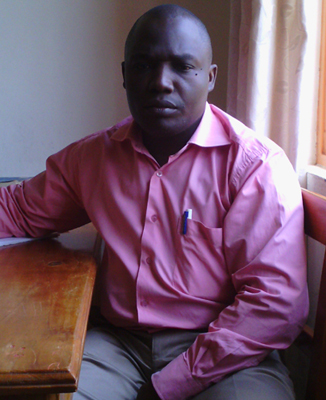
Davis Wamonhi
Davis Wamonhi’s own students at Kagarama Secondary School in Kigali, Rwanda, inspired him to use IWitness in his classroom.
Wamonhi’s history students were invited to attend an IWitness pilot at Gisozi Genocide Memorial, where they were introduced to learning history through video testimonies through USC Shoah Foundation’s interactive educational website.
“The experience was so exciting to the students that many could not resist sharing their experiences with me and confessed that it was a lively and motivational way of learning,” Wamonhi said. “It was out of what my students told me that I developed interest in getting involved in IWitness activities.”
Following the IWitness pilot, Wamonhi said his students were inspired and moved. Some are survivors of the 1994 Rwandan Tutsi Genocide, and watching testimonies of fellow genocide survivors in IWitness made them realize they are not alone. His Hutu students also became more sensitive to their Tutsi classmates and talked about the genocide with more sympathy. And, of course, all the students enjoyed using computers in the classroom.
Wamonhi attended the first IWitness teacher training at Kigali Genocide Memorial Center (KGMC) in November, and learned the technical aspects of IWitness as well as how to be sensitive to students’ potentially emotional reactions to watching testimony.
Genocide has been one of the most difficult and sensitive topics for Wamonhi to teach, he said, because his students are both survivors and the children of perpetrators. Many teachers in Rwanda choose to avoid the topic, and those that do want to teach about it have limited materials.
“As a teacher, I no longer have to labor with explanation of what happened because the testimonies from the survivors do it for me,” Wamonhi said.
Wamonhi is building his own Information Quest activity in IWitness called “The Rwanda Tragedy: The Evils of the 1994 Rwandan Genocide Against the Tutsis.” The activity is designed for students to learn the history of the genocide and its effect on Rwandan society today through testimony.
All teachers in Rwanda should be trained in using IWitness, Wamonhi said, because in motivates the students, enhances critical thinking, compassion and peace-building, and builds digital literacy.